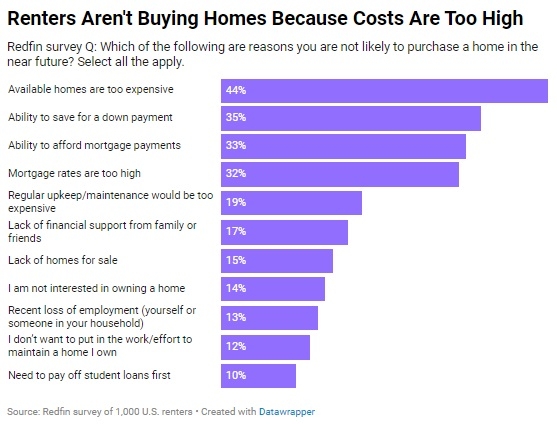Advertisement
Velma.com announced strategic alliance with Bliss Sawyer
Become the lenderJoe CornoFHA, VA, graduated interest payments, HUD
I have been consulting with a retail tire franchise recently.
This franchise uses balloons strung to their tires to raise
attention of passing motorists to their retail store front. I am a
grandfather, so I like using some of the balloons to give to
children who come with a parent and are in the waiting area. The
franchise has a certain color marquee and uses those colors of
balloons. I use the odd colors to give to the children.
Children are in amazement when they get handed a helium filled
balloon. In about my third month of consulting, I realized the
source of the helium-filled-balloon-excitement. It is not the
balloon in itself that causes the excitement. It is the helium that
causes the balloon to take flight. Children are astonished as a
balloon tied to the string floats toward them.
How can you make your business take flight? How can you utilize
deflated properties and inflate them to becoming sought after
deals? The answer: By converting your home purchasers into lenders
and opening up a discarded target group. The investor is securing
properties that the customers are not able to qualify to purchase
as purchasers.
Wow! That is a mouthful. Let me dissect the matter in explaining
what I did as a retail broker. I, at times, would assist people by
financing a small second mortgage. I would finance people who were
struggling with default or potential foreclosure. I would evaluate
risk, look at what would remedy the situation and work in their
current financial crisis, and lend them a very short-term loan.
I would have borrowers sign disclosures that the loan is a
band-aid over a cancerous situation. The borrowers would adhere to
a regimented strict finance plan (in which I supplied six written,
instructional lessons), or they probably, and most likely, would
lose their home to my company. I would not charge high interest or
huge fees. I would have them sign a grant deed (except in the 13
original colonies which require attorneys) that I could record if
they defaulted on a payment or pay-off.
In the above scenario, I was not a home purchaser. I was a
lender, and when I took over title, as a lender, there were no
qualifying, no "subject to" assumption, or buyer fees. The first
lien holder would simply accept my payments per lender rights and
laws. My family and friends witnessed my increase in homeownership
and wanted to invest in my notes. You can secure second deeds on
properties that are not in financial conflict, as well.
Another interesting thing happened: In states where taxes are
based on purchase price, the taxes would not increase because it
was a deed over (in lieu of foreclosure) and the tax base remained
at the rate when the exiting owners purchased. I started pooling
funds of family and friends (not recommended by this writer), and
found that funds and family do not mix at reunions and
gatherings.
I found myself working with doctors, lawyers and accountants who
had funds to invest. I started assigning the second deeds over to
individuals that would potentially and ultimately receive ownership
through default on the note that they purchased. Here is the
Hitchcock twist to this relationship. They wanted to invest more
because they were obtaining homeownership through lender rights and
laws. They never needed to personally qualify or pay fees to
acquire any first loan.
I had investors obtaining Federal Housing Administration and
Veterans Affairs (VA) loans (through the defaulting notes) that
would have never allowed them to qualify as purchasers. Back in the
days of "graduated interest payments," the investors/landlords (due
to leasing out the acquired property) had legal right to increase
rents, even in a rent freeze. This lender concept can attract and
tap into the investors, not as purchasers, but as lenders of second
deeds of trust.
Certain states do not require licensing if you only fund second
loans. The U.S. Department of Housing and Urban Development and VA
defaults can be brought current with one of your second lien notes.
During and at 90 days, if a payment is missed once or the note is
not remedied with pay off, the previously signed and notarized
grant deed is recorded and the lender (investor) takes the property
away from the borrowers.
Most of the time, it only takes a few thousand dollars to bring
a default current. With the second loan, the borrowers have some
breathing room to evaluate their circumstances, and to decide
whether to work at paying the short-term debt off or initiate
payment default to relieve them of the home payment. They benefit
with a low rate and fees that can be added to the note balance.
Please check your individual state "predatory lending" laws. Be
sure to practice professionally and obey your specific state laws.
In some states, if you finance a loan knowing that there will be no
possible way for the borrowers to re-pay, this is considered a
predatory act. The six lessons I provided protected me in all the
states that I funded second loans in.
In most cases, the borrowers did not change habits and did not
follow the written instructions. They were pleased that they did
not have a Notice of Default or Foreclosure attached to the credit
record and were able to find a rental. Sometimes, it was one of my
investors' homes that they would move into on a rent or
lease-to-own.
I hope the helium provided in this article has inflated your
balloon againanother target group (investors) being overlooked and
passed up. Make them lenders, not non-owner purchasers.
You, as the finance company, can charge fees for securing and
assigning the notes. You can receive monthly servicing fees for
collecting payments and pay-offs. You can also manage (if so
licensed) the properties that have been deeded over and became
rental units for the private investing lenders.
Fixing up and flipping could build up additional funds for
privately-financed loans against more properties. As properties are
removed off default and foreclosure lists are utilized for rental
properties or improved and marketed again, what do you think would
happen to your local property values?
I love writing about target groups and concepts that benefit
everyone involved. Those who did follow the written instructions
kept their homes and became financially strong. They learned how to
eliminate debt and remain financially independent. No, the
six-lesson series does not include any multi-level marketing
business, just common sense.
If you have a specific need in your area, feel free to e-mail
me. I love taking on specific target groups and concepts so that
you can benefit.
Joe Corno is president of Utah-based We Be Consulting and
Seminars. He may be reached at (801) 836-2077 or e-mail [email protected].
About the author





